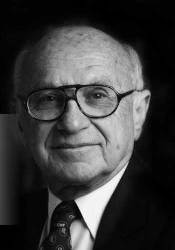Almost a year ago I participated in a
debate at TheologyWeb on the soundness of the Transcendental Argument for the Existence of God (TAG). Naturally, I took the negative (*wink*). Unfortunately, after the initial expositions, my opponent was unable to continue, but I still think my opening statement was a pretty good one:
ObjectivesExpectationsWhen I first encountered this argument several years ago, I was quite taken with the novelty of its approach. Like Anselm’s Ontological Argument it appears quite convincing at first blush, but upon deeper reflection, the flaw at its heart becomes evident. It is my hope that this essay will allow me to explain and demonstrate why it is that I believe TAG to be not only unsound, but also self-defeating in exactly the same sense as TAG proponents claim non-Christian worldviews to be.
However, even assuming my utter success, it’s important to note that a defeat of TAG does not demonstrate the non-existence of the Christian God. In fact, given my philosophy of religion, I believe that TAG is more likely to be false if it is the case that God actually exists. I expect that my rationale for this will become clear as we proceed. At any rate, suffice it to say here that this essay is not about the existence of God, merely the soundness of this particular argument for His existence (although it is true that if I were to become convinced of the soundness of TAG, I would appear to have no rational grounds to deny God’s existence).
Burden of Proof Tthe primary component of TAG that its proponents assert (and one which I am attacking) is that no non-Christian worldview can provide sufficient warrant for human intelligibility. To meet their burden of proof, TAG proponents must therefore do one of two things:
1) Demonstrate that every possible worldview fails to meet the test(s) for warrant.
2) Demonstrate that it is impossible in principle for any worldview other than the Christian one to meet the tests for warrant.
Given that #1 would necessarily involve subjecting every possible worldview to the test(s) in question to see if they pass or fail, and given that there are hundreds if not thousands of possible worldviews (and would therefore seem highly unlikely if not impossible to accomplish), I will I will confine my discussion to #2. My job, therefore, is to provide reason to believe that whatever principle the TAG proponent might propose to vitiate non-Christian worldviews is insufficient to that task.
Therefore, in addition to demonstrating that TAG is itself unsound, in the course of these remarks I will also outline a positive case for a non-Christian worldview that provides sufficient warrant for the intelligibility of human experience, thus vitiating in principle any attack the TAG proponent might contend.
AssumptionsIn the course of any discussion, there it is generally the case that both "sides" will make certain assumptions. In pressing my negative attack, I will attempt to make as few as possible, as the only necessity is to provide rational grounds to reject TAG. On the other hand, for my positive case I will adopt several of the key assumptions made by TAG proponents. In particular, the argument rests upon an assumption of some form of realism: the belief that reality is in some sense objective. That is, existents are instantiated and sustained external to the mind. TAG also appears to assume a form of foundationalism: the belief that “all knowledge and justified belief rest ultimately on a foundation of noninferential knowledge or justified belief.(1)” For the purpose of this discussion, I will also stipulate to these assumptions. I do this because it will render the argument easier to follow, but also because I also happen to believe them more likely true than not (as I believe my positive case will demonstrate).
RequirementsIn order to examine this topic, it will be necessary to establish standards, or a methodology by which we can determine success or failure.
The general idea I'm attacking could be stated as “only the Christian worldview provides the necessary preconditions for the intelligibility of human experience.” I want to spend a little time parsing this notion in order to ensure that readers will understand exactly what I mean when I argue against it. In particular, there are three terms the definitions of which I see as crucial to ensuring a common understanding: “worldview”, “preconditions”, and “intelligibility”.
Worldview – A worldview is more commonly known (in philosophy, anyway) as a “metaphysic”. In short, a theory that seeks to provide a “comprehensive account of the most general features of reality as a whole; the study of being as such (2)”. These features I understand to be:
1) Ontology (the study of existence and the nature of existents)
2) Epistemology (the study the nature and grounds of knowledge)
3) Ethics (a theory or system of moral values)
Preconditions – It is my contention that “preconditions” should be defined as the element or elements that are understood as the minimum necessary in order to support the belief or concept in question. As an example, necessary preconditions for spoken language would include a mind capable of prepositional thought and a means of vocalization.
In the context of this discussion, and related directly to the understanding of “worldview”, I would define “preconditions” to be:
Existence: a minimum requirement for ontology.
Logic: a minimum requirement for epistemology.
Meta-ethics: a minimum requirement for ethics.
Intelligibility – Understanding this component is critical to the discussion at hand. One of my suspicions regarding the usage of TAG is that its proponents are engaged in a subtle form of circular reasoning. NOT in that they assume God to prove God, but rather that their definition of “intelligibility” assumes something that is ipso facto impossible to demonstrate without the existence of God. IOW, TAG proceeds as a reductio in order to demonstrate how non-Christian worldviews cannot provide sufficient warrant for intelligibility, but the TAG proponent defines “intelligibility” as something only the Christian worldview can supply, thus rendering the argument circular.
To my way of thinking, “intelligibility” means nothing more nor less than “a context in which X can be understood”. Many TAG proponents seem to define it as “comprehensible in the same manner as a Christian would understand it” (I say seems as that is how it appears to me). For example, it’s commonly asserted that the meta-ethical theory known as emotivism (3) does not render moral judgements intelligible. But as emotivism does indeed provide a context in which moral judgements can be understood, it does in fact render them intelligible. What the opponent of emotivism likely means is that emotivism does not satisfy her own particular intuitions as to the meaning of moral judgements (i.e., that moral judgements reflect an objective moral code) which, in effect, is presupposing that only her preferred manner of intelligibility will suffice. But this is essentially to assume exactly what she’s attempting to prove: that her context is the correct one. We shall see as we proceed whether that perception is realized in this discussion, but for now, I’ll proceed under the assumption that intelligibility is contextual, regardless of the actual context involved.
So, to sum up this section I can restate the idea I'm attacking in terms of the definitions I’ve provided:
Only a Christian ontology, epistemology, and ethical theory can provide the minimum necessary support for existence, logic, and meta-ethics to enable a context within which human experience can be understood.
This is how I parse the basic idea behind the use of TAG and the issue central to this discussion.
Argument
Overview of TAG
I would provide a "syllogisation" of TAG as follows:(4)
Definitions:
(a) CW is the orthodox Christian Worldview.
(b) HE is human experience
(c) P is some person
(d) Q is some proposition or set of propositions
Argument:
P1) If CW is true, then HE is intelligible (to be proved)
P2) Assume arguendo that CW is false, yet HE is nevertheless intelligible
P3) If HE is intelligible, then P can have contextual knowledge of Q
P4) If P can have contextual knowledge of Q, then Q is true AND P believes that Q is true AND P is warranted in believing that Q is true (including the definition of knowledge as justified true belief)
P5) If P is justified in believing that Q is true, then P can have transactions with abstract entities (such as laws) AND P can have transactions with concrete differentiated entities (like the referent of Q) AND P can relate these transactions to each other (including a necessary condition for warrant)
P6) However, it is not the case that P can have transactions with abstract entities OR it is not the case that P can have transactions with concrete differentiated entities OR it is not the case that P can relate these transactions to each other (this is the central claim being made by my opponent; the one for which he bears a primary burden of proof)
C1) Therefore, it is not the case that P can have contextual knowledge of Q
C2) Therefore, it is not the case that HE is intelligible
C3) Therefore, it is not the case that HE is intelligible and yet CW is false
C4) Therefore, it is not the case that HE is intelligible OR it is the case that CW is true
C5) Therefore, if HE is intelligible, then CW is true
This is certainly longer than the paragraph that contains its central principle, but the claim is the same: if human experience is intelligible, the Christian Worldview is true. P6 constitutes the essence of the TAG proponent's claim that only the Christian Worldview can justify human intelligibility.
Strength of TAG
As the title of the argument suggests, TAG proponents are transcendental foundationalists. That is to say that they are foundationalists who believe that the non-inferential basis for knowledge must be transcendental. TAG proponents argue that this must be so in order to prevent a grounding in, as my opponent says, “subjectivism and relativism.”
Although I’ve never seen a TAG proponent explicitly state it, it seems reasonable to understand this assertion as stemming from Kant’s notion of the synthetic a priori. That is to say that the non-inferential basis for knowledge must be both synthetic (genuinely informative; non-tautologous) and a priori (based on reason alone, independent of sensory experience).(5) If so, I take this as a basic strength of TAG for, like its proponents, I agree that only such a basis can adequately ground a foundationalist epistemology. Further, I also agree (at the very least for the sake of this discussion)that only a transcendental approach is likely to successfully avoid the problem of infinite regress and rebut the types of skeptical assault that have been used in the past to vitiate other foundationalist epistemologies.(6) However, where the TAG proponent and I part ways is their insistence that the transcendental foundation be supernatural. As I hope to make clear, this is a wholly unnecessary requirement. Weaknesses of TAG
As I mentioned above, TAG proponents insist that the only transcendent foundation that can provide satisfactory warrant for the intelligibility of human experience is a supernatural one. But exactly why seems unclear. I have participated in several exchanges with proponents, but I've yet to see the reasoning clearly expounded. At any rate, as the “transcendence” of the Kantian metaphysic isn’t supernatural, it seems that at the very least TAG proponents should provide some argument as to why they believe it must be so.
Central to the claim in P6 (as I have limned the argument) is the alleged inability of non-Christian worldviews to account for abstract concepts (specifically universals). TAG proponents will often raise this issue, specifically targeting the laws of logic. They seem to believe that unless these laws exist objectively (in a Platonic fashion, perhaps?) that they cannot exist as absolute and universal. Why they make this claim is clear: it lends direct support to their requirement of supernaturalism. However, it seems to me to be based on a mistake of reasoning known as “reification”(7). I think I can illustrate this most clearly with a brief discussion on the nature of truth.
The incident that sparked me to write this essay was in fact an encounter on the nature of truth. Truth, properly understood, is an abstract concept; it is not a “real” thing in the sense of having concrete existence. Stated another way, truth is a property of propositions, not reality in that only propositions about reality can be true or false, reality itself just is. The statement “this object is a rock” may be true or false; the object itself, however, it cannot be said to be “true” or “false”. This seems to be a basic difference that appears to be ignored by TAG, the difference between “truth-bearers” and “truth-makers.” That is to say, the difference between a proposition as a “truth-bearer” and reality itself as a “truth-maker.” We evaluate the truth or falsity of propositions by comparing them to reality.(8) With what would we compare reality?
Now we’re in a position to evaluate the flaw in the TAG proponent’s claim that logic must exist objectively in order to be universal and absolute. Logic is an abstract conception, a description of reality. It is not reality itself. Reality itself is indeed universal and absolute and the language of logic, as a truth-bearer, reflects this truth. And as the TAG proponent will agree, we can directly apprehend the truth of logic because it is impossible to argue against it.
Finally, a fundamental flaw at the heart of TAG is that, properly parsed, it is self-defeating in exactly the same way as it’s proponents claim all non-Christian worldviews are.
To see why, we need to understand first that the Christian worldview stipulates that God is the absolute, universal, transcendent ideal upon which all of existence depends. So far, so good, but TAG goes a step further in declaring that intelligibility itself depends upon God’s existence. God is an “enabler” of rational thought and without Him, there can be no rational thought.
The claim that I'm attacking is that “only the Christian worldview provides the necessary preconditions for the intelligibility of human experience.” TAG, therefore, is making the claim that the Christian God, and only the Christian God, can supply those necessary preconditions. But how are we to understand this claim? There seem to me to be two possibilities:
1) God creates the necessary preconditions where they did not previously exist
2) The necessary preconditions are dependent upon God’s nature
#1 necessitates that these “necessary preconditions” aren’t in fact necessary. If God needed to create them, it is necessarily the case that they aren’t universal or absolute. But if they aren’t universal or absolute, the TAG proponent loses her ability to argue against “subjectivism and relativism” and thus the argument fails. We would also still be left with the question, “why God? Why not Siva, or Allah, or Odin?” Any attempt to answer that question will likely lead directly to #2, so this possibility would seem to be a non-starter.
#2 is a bit of a more complex case. If it’s God’s nature that provides the necessary preconditions (and not His will), then God must have certain characteristics that enable Him to function as the transcendent foundation the TAG proponent argues He is.
Put simply, and in terms of our primary focus, God must be logical. His nature must be expressible in terms of the primary laws of logic (non-contradiction, identity, excluded middle, etc). And moreover, His nature cannot be subject to His will; if it were, logic could not be said to be absolute and universal (and we’d be back at #1).
But now we’re in a position once again to ask “why God? Why not Siva or Allah or Odin?” There are several possibilities inherent in the alleged characteristics of these deities upon which the TAG proponent might draw in formulating an answer, but let me step back for a moment to my claim that TAG is self-defeating and expand upon that as a rebuttal to any possible argument the TAG proponent could offer. Because it seems to me that in arguing that the laws of logic are dependent upon God’s nature TAG proponents are essentially conceding the argument to their opponents. To see why, we need to unpack the semantic concepts inherent in “God.”
In proposing, “God exists”, we are committing ourselves to the proposition that “X exists”, where X is understood to be some entity describable in terms of it’s characteristics. In essence, we’re saying, “some set of characteristics is instantiated in X”. “God”, as defined by orthodox Christianity, has several characteristics (all-loving, all-good, all-knowing, all-powerful, etc), but in terms of our primary focus, the one we’re interested in is “being logical” (or something to that effect). All-loving, all-good & all-knowing may indeed be part of God’s nature, but they don’t seems to be applicable to logic and hence to the intelligibility of human experience (with the possible exception of ethics, but that’s not strictly at issue yet).
But why does “being logical” require God to instantiate it? Once the TAG proponent has conceded that the laws of logic are dependent upon God’s nature, that God’s nature is not dependent upon His will, and that God’s nature is a set of characteristics only one of which applies, it is not at all clear why the instantiation of this particular characteristic requires the instantiation of “God”. Further, remembering the difference between truth-bearers and truth-makers, it’s also not clear why the truth-bearer must exist objectively. Why can it not simply be the case that existence itself is amenable to order and logic? Why can it not be the case that features of objective reality give rise to the descriptive laws of logic? Indeed, in presupposing that God can have such characteristics independent of His will, that’s essentially what they are arguing.
So it would appear that at the heart of TAG there is the same sort of self-contradiction that it claims exists at the heart of every non-Christian worldview. TAG proponents must presuppose that the nature of existence (God or not) itself is amenable to order and logic, before supposing God.
My TA
With all of the preceding out of the way, I can begin to outline my own TA; a transcendental argument for the intelligibility of human experience that doesn’t require God. This will be somewhat abbreviated as it’s only ancillary to my overall argument. I’ll do so in terms of the components of a worldview that I stated earlier:
Ontology
It’s cliché, but: Existence exists. Reality exists external to and independent of our perceptions of it. All existents have a nature (characteristics) that dictates the manner and context of their existence. Note that this is actually the same ontology employed by TAG proponents.
Epistemology
Simply put, perceptual realism and nominalism. Our perceptions of reality are actual interactions with externally existing objects (this comes directly from my ontology). The mind imposes form and order on reality in the form of language (nominalism), but this is reflective of the nature of reality. In other words, all existents have a nature that dictates the manner and context of their existence and this is reflected in our perceptions of reality. I can perhaps illustrate this by a defense of the principle of induction. Because the laws of non-contradiction and identity are true propositions about the nature of reality (an ontological presupposition), there exists in nature a uniformity that can be observed, recorded, and utilized in the formation of knowledge. An oxygen atom will always be an oxygen atom and will always behave as an oxygen atom does. Thus the empirical principle of induction is justified as a means of gaining knowledge of the external world. Note again that this epistemology is likely similar in form (if not in context) to that employed by TAG propoenents. They would likely defend induction as viable as well, based on the same reliability of logical principles. It is only in the warrant for logic where we differ and, as I’ve already shown, there is no reason to grant their argument in that area.
Ethics
As I stated earlier, I think the meta-ethical theory of Emotivism would serve to vitiate the TAG proponent's ethical claims, but I’m not a proponent myself. So, my meta-ethical stance is one based on virtue and natural law (in the Aristotleian, not the Thomistic, sense). Like every other existent, Man has a nature and moral agency is part of that nature. Man qua man exists as an end unto himself and moral value flows from that understanding. Succinctly, Euadaimonia, as outlined by Aristotle in the Nicomachean Ethics, is Man’s highest moral goal.(9)
Conclusion
TAG is unsound because while the argument holds that God is necessary for the intelligibility of human experience, the premise making that claim is impossible to prove without engendering a contradiction. Even when granted the assumptions of foundationalism and realism, its proponents have still been unable to demonstrate any necessary connection between the Christian God and the existence of those features of reality that give rise to the laws of logic.
Notes
1) The Stanford Encyclopedia of Philosophy
2) Garth Kemerling's Philosophy Pages
3) Emotivism is “[t]he meta-ethical theory according to which the meaning of moral language is exhausted by its expression, evocation, or endorsement of powerful human feelings. Thus, for example, saying ‘Stealing is wrong,’ is just an especially strong way of reporting that I disapprove of stealing, evoking a similar disapproval from others, and thereby attempting to influence future conduct—both mine and theirs. Although its origins lie in the non-cognitivist morality of Hume, emotivism reached its height early in the twentieth century, with the work of the logical positivists and Stevenson.” Source: Garth Kemerling's Philosophy Pages
4) A “syllogization” of TAG was presented by David Byron on the VanTil mailing list in February of 1998. I presented a greatly simplified version of his presentation, removing what I considered to be some minor redundancies, logical jargon, and his explication of the logical steps involved. Mr. Byron’s original post can be retrieved from the VanTil list archives.
5) This explanation of synthetic a priori is based upon Garth Kemerling’s discussion of ideas in Kant’s Prologomena which can be found here.
6) For a discussion of objections to foundationalist approaches, see the Stanford Encyclopedia of Philosophy.
7) The act of treating an abstract concept as if it were a real, concrete thing. For more, see Wikipedia.
8) Assuming a correspondence theory of truth, which seems reasonable given a realist/foundationalist epistemology. See Garth Kemerling’s definition here.
9) For a full definition, see Wikipedia.












